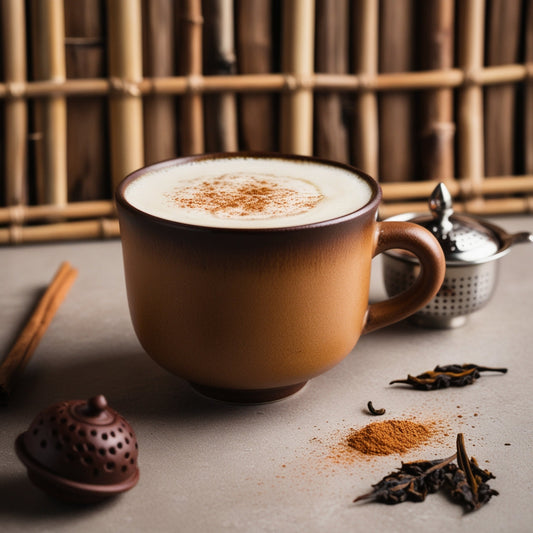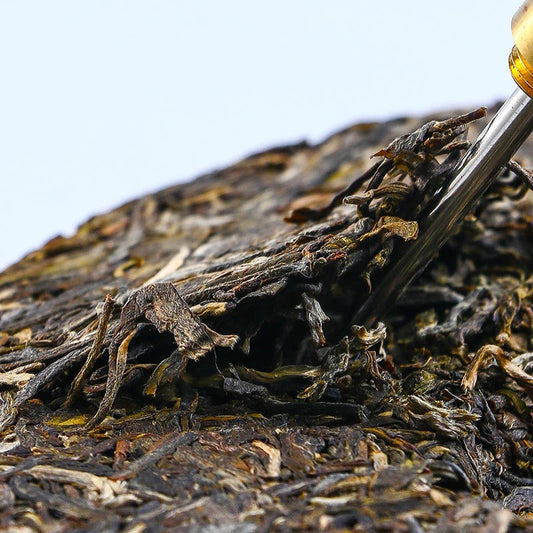Overview
Tea lovers often find themselves torn between black tea and green tea. Despite their differences, both types of tea originate from the same plant, Camellia sinensis. Yet, their processing methods, flavours, caffeine content, and health benefits can vary dramatically. With a market flooded with various teas, understanding the core differences can help tea drinkers make informed decisions.
In this article, we'll explore the key distinctions between black tea and green tea. We'll delve into the processes that create their unique flavours, health benefits, and how to choose which tea to enjoy daily.
Table of Content
- Overview
- Introduction
- What is Black Tea?
- What is Green Tea?
- Difference Between Black Tea and Green Tea
- Unique Health Benefits
- Which Tea Should You Choose for Your Daily Routine?
- Conclusion
Introduction
When it comes to choosing between black tea and green tea, the decision isn’t as simple as it seems. While both teas have deep-rooted traditions in cultures worldwide, they each bring their own health benefits and flavours to the table. Understanding how they are made, their unique health properties, and which tea is more suitable for different situations can help you make an educated choice.
We’ll explore what sets these teas apart, with easy-to-understand language and an authoritative tone.
What is Black Tea?
Black tea is one of the most consumed beverages globally, particularly in Western cultures. It is produced by allowing the leaves to undergo full oxidation (also called fermentation), a process that turns the green leaves into a dark brown or black hue. Oxidation also deepens the flavour profile of the tea, giving it a richer, often malty or robust taste.
The process of making black tea involves several steps:
- Withering: Fresh tea leaves are laid out in the sun to lose moisture.
- Rolling: The withered leaves are rolled to release their essential oils, which contribute to the flavour.
- Oxidation: The leaves are left exposed to oxygen, turning them dark and developing the bold flavours black tea is known for.
- Drying: Finally, the leaves are dried to stop the oxidation process and preserve their flavor.
In addition to its rich flavour, black tea is well-known for its relatively high caffeine content, averaging between 40 to 70 milligrams per cup, which makes it a popular morning beverage. Black tea can be enjoyed with milk, sugar, honey, or even lemon. Popular varieties include Assam, Earl Grey, and Darjeeling.
Unique Fact: Black tea’s robust flavour and high caffeine content make it an excellent alternative to coffee for those looking to switch to a lighter, less acidic drink.

What is Green Tea?
Green tea is highly revered in Asian cultures and has gained global popularity for its light, fresh taste and numerous health benefits. Unlike black tea, green tea is minimally processed and undergoes little to no oxidation. The fresh leaves are quickly steamed or pan-fried right after harvesting to prevent oxidation, which preserves their green colour and delicate flavour.
The process of making green tea involves:
- Steaming or Pan-Frying: This step stops the oxidation of the leaves immediately after harvesting, preserving their bright green colour.
- Rolling: Similar to black tea, the leaves are rolled to enhance flavour.
- Drying: The leaves are dried to retain their freshness and prevent spoilage.
This minimal processing means that green tea retains more natural antioxidants compared to black tea. Catechins, a type of antioxidant found in green tea, are particularly noted for their health-promoting properties. The flavour of green tea is usually described as fresh, grassy, or slightly vegetal, and it has a lower caffeine content than black tea, ranging from 20 to 45 milligrams per cup.
Popular varieties of green tea include Matcha, Sencha, and Dragon Well.
Unique Fact: The powdered form of green tea, known as Matcha, contains the whole leaf, which is ground into a fine powder. Because you consume the entire leaf, Matcha is considered to offer even more concentrated health benefits.
Difference Between Black Tea and Green Tea
Now that we’ve explored the basics of both teas, let’s break down the differences. These pointers will clarify the distinctions, making it easier for you to choose the tea that fits your needs.
-
Oxidation Process:
Black tea undergoes full oxidation, giving it a dark colour and rich flavour, while green tea is quickly steamed or pan-fried to prevent oxidation, maintaining its green colour and fresh taste. -
Flavour Profile:
Black tea has a strong, bold flavour, often described as malty, while green tea is lighter, with a more delicate, vegetal taste. -
Caffeine Content:
Black tea contains more caffeine (around 40-70 mg per cup) compared to green tea (20-45 mg per cup), making black tea a better option for an energy boost. -
Antioxidants:
Green tea is richer in catechins, a potent antioxidant, while black tea contains theaflavins, which offer their own health benefits but are less potent than catechins. -
Health Focus:
Green tea is often associated with weight management and antioxidant properties, while black tea is more closely tied to heart health and gut health. -
Processing Method:
Black tea leaves are fully fermented, while green tea leaves are minimally processed, which contributes to their distinct characteristics. -
Shelf Life:
Black tea generally has a longer shelf life than green tea, thanks to the oxidation process that preserves its flavour over time.
Unique Health Benefits
Both black and green tea offer a wide range of health benefits, but each brings something unique to the table.
Black Tea’s Health Benefits:
-
Heart Health:
Studies have shown that black tea consumption may help reduce blood pressure and cholesterol levels. The antioxidants found in black tea, particularly theaflavins and thearubigins, contribute to improved cardiovascular health. -
Gut Health:
Black tea contains compounds that promote the growth of good bacteria in the gut. This supports digestion and overall gut health, which is crucial for maintaining immune function. -
Bone Health:
Some research suggests that regular consumption of black tea may help strengthen bones, reducing the risk of osteoporosis, especially in older adults. -
Focus and Mental Alertness:
With its higher caffeine content, black tea can help improve focus and concentration. L-theanine, an amino acid found in tea, complements the caffeine by promoting relaxation without drowsiness, leading to better cognitive function.
Green Tea’s Health Benefits:
-
Rich in Catechins:
Green tea is loaded with antioxidants, particularly catechins like EGCG (epigallocatechin gallate), which help protect cells from damage and reduce inflammation in the body. -
Weight Loss:
Green tea is often touted for its fat-burning properties. It can boost metabolism, aiding in fat oxidation and weight loss, particularly when combined with a healthy diet and regular exercise. -
Improved Brain Function:
The combination of caffeine and L-theanine in green tea improves brain function by providing a mild stimulant effect without the jitters. This makes it a good choice for staying alert without becoming overstimulated. -
Cancer Prevention:
Some studies suggest that the antioxidants in green tea may help protect against certain types of cancer by neutralising free radicals in the body.
Unique Insight:
While both teas offer cardiovascular benefits, green tea stands out due to its ability to improve metabolic function, making it an excellent choice for those looking to lose weight or maintain a healthy weight. On the other hand, black tea is an ideal option for those seeking a stronger caffeine kick and gut health benefits.

Which Tea Should You Choose for Your Daily Routine?
Choosing between black tea and green tea for daily consumption depends largely on your personal health goals and taste preferences.
-
If You Need More Caffeine and Energy:
Black tea, with its higher caffeine content, can be your go-to morning beverage. It provides a stronger energy boost than green tea, making it a suitable alternative to coffee. It’s also a good option if you enjoy a richer, more robust flavor. -
If You’re Focused on Antioxidants and Weight Loss:
Green tea shines when it comes to antioxidant power and weight management. If your priority is to consume more catechins, which help reduce the risk of chronic diseases, then green tea is the better option. Its lower caffeine content also makes it a great afternoon beverage that won’t interfere with your sleep. -
For Relaxation and Calmness:
Both teas contain L-theanine, an amino acid known for promoting relaxation without drowsiness. However, green tea, with its lower caffeine content, may offer a more balanced effect for those looking to unwind. -
Taste Preferences:
If you prefer a strong, malty flavour, black tea is the better choice. But if you enjoy a lighter, grassy taste, green tea will be more to your liking.
Ultimately, the best tea for you depends on your daily routine and personal preferences. You may even find that alternating between black and green tea provides the perfect balance.
Conclusion
Whether you’re a fan of the bold, robust flavour of black tea or the light, refreshing taste of green tea, both offer impressive health benefits. Black tea, with its higher caffeine content and potential to improve heart and gut health, is an excellent choice for those seeking an energising beverage. Green tea, on the other hand, is celebrated for its powerful antioxidants, metabolism-boosting properties, and lighter flavour, making it a favourite among those focused on weight management and cellular health.
By understanding the key differences between these two teas, you can make a more informed choice that aligns with your taste and wellness goals.
Q&A
Q1: Can I drink both black and green tea in one day?
Yes, it’s perfectly fine to drink both black and green tea in a single day. Just be mindful of your total caffeine intake, especially if you’re sensitive to caffeine.
Q2: Which tea is better for weight loss, black or green tea?
Green tea is often considered more effective for weight loss due to its high catechin content, which boosts metabolism and fat oxidation.
Q3: Does black tea stain teeth more than green tea?
Yes, black tea is more likely to stain teeth because it contains more tannins, which contribute to discoloration. Drinking black tea with milk or using a straw may help reduce staining.
Q4: Is green tea or black tea better for heart health?
Both teas support heart health, but black tea is particularly beneficial for lowering cholesterol and improving cardiovascular function, while green tea helps reduce inflammation and improve metabolic health.
Q5: Which tea is better for gut health?
Black tea may offer more benefits for gut health as it supports the growth of good bacteria in the digestive system.






